It was my great pleasure to take part last week in a conference organised by the Stylistics Research Group at Sheffield Hallam Style and Response. My paper reported on the activities of our two BU based AHRC funded projects, and on the ethical and methodological challenges of researching readers and reading online. The conference was an important opportunity to disseminate the work of the existing projects and to further extend our network of scholars researching reading in the digital age. It was also an opportunity to discuss what will hopefully be the next stage of this research, as our application for Follow on Funding to the AHRC is currently being finalised….
The first day included a fascinating panel on Digital Fiction, particularly focusing on immersion and showcasing different methodologies including the Think Aloud protocol and participant interviews. The case studies discussed in this session included Dreaming Methods’ Wallpaper (Alice Bell), videogame Zero Time Dilemma (Jess Norledge and Richard Finn) and The Princess Murderer (Isabelle Van der Bom). After lunch, I switched between panels to catch Sam Browse’s entertaining paper presenting an ethnographic study of a group of local Labour party activists, followed by Lyle Skains’ paper reporting on how her creative writing students responded to reading digital or ‘ergodic’ fiction, and how they felt this influenced their own creative practice.
It was great to see diversity throughout the programme both in terms of methods and case studies. One of the takeaways from day one was a strong preference for mixed methods, and there was a very lively discussion following the closing plenary (presented in absentia by Ranjana Das) about the extent to which exploring new approaches and methods from different disciplines can be managed without diluting or compromising the skills and expertise that we have as researchers primarily trained in critical analysis and close reading.
I delivered the opening plenary on day 2, followed by a fascinating panel on Attention, with an insightful paper on cognitive approaches to re-reading from Chloe Harrison and Louise Nuttall, and a very informative and interesting paper on eyetracking and onomatopoeia in manga from Olivia Dohan.
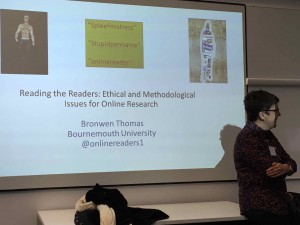
The afternoon sessions provided further innovative approaches to media and new media texts and cultures. Isabelle van der Bom and Laura Paterson reported on a corpus linguistic study of live tweeting of Benefits Street, which provided depressing but fascinating evidence of the ways in which the ‘echo chamber’ of social media is nevertheless shaped in interaction with other media (tv, the tabloid press). It also raised questions about the extent to which empirical and particularly quantitative approaches can tell the ‘whole story’ when it comes to a discourse where there may be just as many silent witnesses as participants.
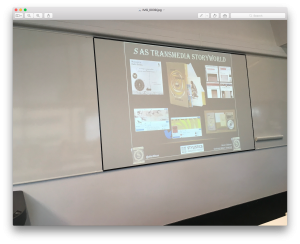
Alison Gibbons’ paper on JJ Abrams’ S offered a fascinating account of the novel as part of a transmedia universe, and reported on her attempts to get ‘real readers’ to create and insert their own marginalia alongside that provided by the novel’s creators. The closing plenary was an energetic and engaging discussion of persuasion and transportation by Melanie Green. As well as transporting us to another world by reading us a story, Melanie’s paper left us with some important insights into the power of stories to change minds for good and ill.
Many congratulations to the organisers of this event for producing such a stimulating couple of days. It was wonderful to see that the study of readers and reading is attracting some innovative work from within the field of stylistics, drawing on a long tradition of focusing on the empirical, but also demonstrating breadth of engagement with terms and methods from multiple disciplines.
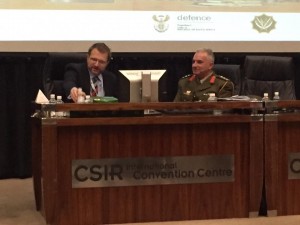
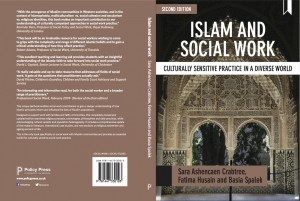 The complexities of multiculturalism as a social ontology and as a political discourse have taken a rapid and alarming turn to the right in a political moment of increasing social turbulence on issues that revolve around national identity, ethnicity and religion. It is therefore timely, if regrettably so, that the second edition of Islam and Social Work makes its debut this month.
The complexities of multiculturalism as a social ontology and as a political discourse have taken a rapid and alarming turn to the right in a political moment of increasing social turbulence on issues that revolve around national identity, ethnicity and religion. It is therefore timely, if regrettably so, that the second edition of Islam and Social Work makes its debut this month.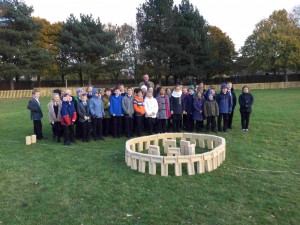
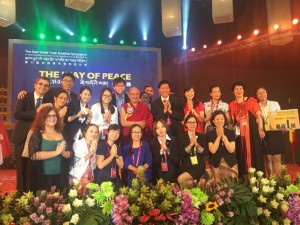 Alexandra Jarrett is a former BU student who is graduating this year from the BA (Hons) Sociology & Anthropology programme in HSS. Prior to taking up her MA studies at the highly prestigious School of Oriental and African Studies (SOAS), Alex was invited to the beautiful northern Thai city of Chiang Mai to present aspects of her final-year dissertation on Buddhist death rituals and beliefs.
Alexandra Jarrett is a former BU student who is graduating this year from the BA (Hons) Sociology & Anthropology programme in HSS. Prior to taking up her MA studies at the highly prestigious School of Oriental and African Studies (SOAS), Alex was invited to the beautiful northern Thai city of Chiang Mai to present aspects of her final-year dissertation on Buddhist death rituals and beliefs.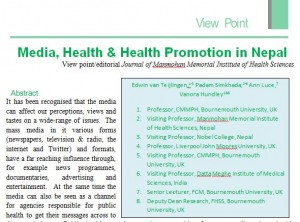

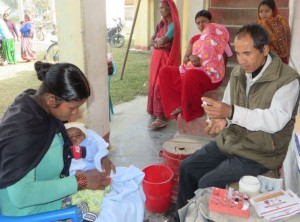
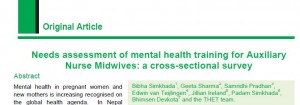

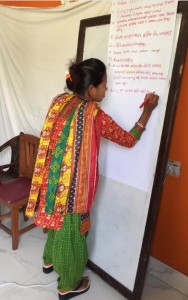
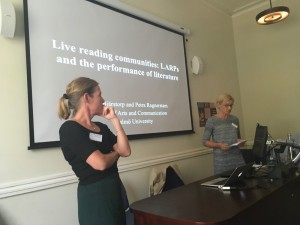
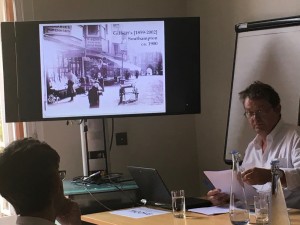
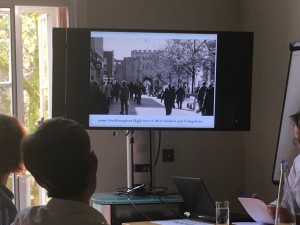
 nd Leisure Education and Research) annual conference which took place in the historic town of Canterbury, between 13-16 September, on “Tourism, Lifestyles and Locations”.
nd Leisure Education and Research) annual conference which took place in the historic town of Canterbury, between 13-16 September, on “Tourism, Lifestyles and Locations”.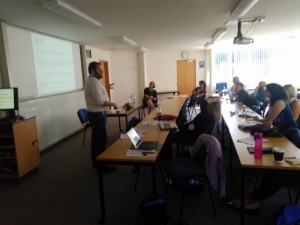
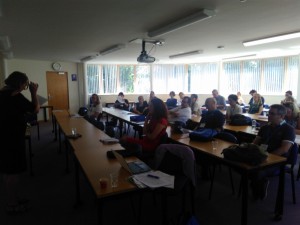

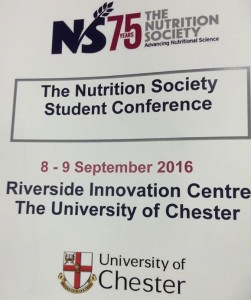
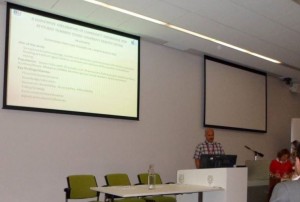


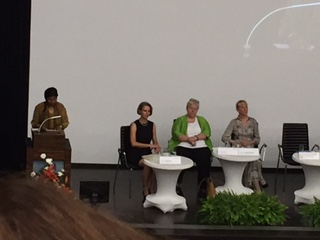
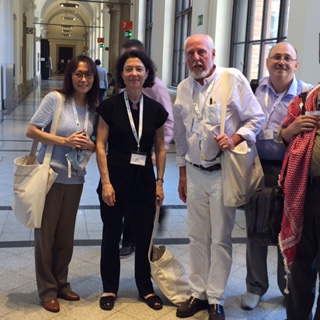
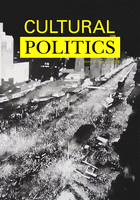











 Free event on Solutions to Inequalities in Dementia Diagnosis and Care
Free event on Solutions to Inequalities in Dementia Diagnosis and Care BU attendance at third annual GCPHR meeting in June
BU attendance at third annual GCPHR meeting in June Interactive Tangible and Intangible Heritage Applications – BU student work featured in new book chapter
Interactive Tangible and Intangible Heritage Applications – BU student work featured in new book chapter Second NIHR MIHERC meeting in Bournemouth this week
Second NIHR MIHERC meeting in Bournemouth this week MSCA Postdoctoral Fellowships 2025 Call
MSCA Postdoctoral Fellowships 2025 Call ERC Advanced Grant 2025 Webinar
ERC Advanced Grant 2025 Webinar Horizon Europe Work Programme 2025 Published
Horizon Europe Work Programme 2025 Published Horizon Europe 2025 Work Programme pre-Published
Horizon Europe 2025 Work Programme pre-Published Update on UKRO services
Update on UKRO services European research project exploring use of ‘virtual twins’ to better manage metabolic associated fatty liver disease
European research project exploring use of ‘virtual twins’ to better manage metabolic associated fatty liver disease